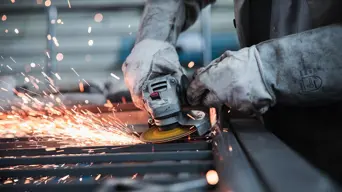Last-ditch govt efforts underway to save ArcelorMittal's steel mills - reports
The scheduled closure of Amsa plants in KZN and Gauteng would threaten over 3,500 jobs.

Photo: Pixabay/jannonivergall
The Money Show's Stephen Grootes talks to Terence Creamer, editor of Engineering News.
Government and ArcelorMittal (Amsa) South Africa are involved in last-ditch attempts to secure a funding deal to prevent the closure of the steel producer's plants, according to latest reports.
Government plans initial support of about R500 million rand to pay steelworkers over a period of six to eight months, said mining.com, quoting unnamed sources.
Bridge financing through the Industrial Development Corporation (IDC) is also reportedly under discussion.
Shutting down ArcelorMittal's plants in Newcastle (KZN) and Vereeniging (Gauteng) would threaten over 3,500 jobs.
RELATED:
Govt acknowledges issues raised by NUMSA over ArcelorMittal's exit from local long-steel business
Over 3,500 jobs at risk as ArcelorMittal closes South African steel plants
Stephen Grootes interviews Engineering News editor Terence Creamer, who agrees that government's steel policy decisions have placed it in a very difficult position in this case.
"This goes back many years, when ArcelorMittal was in dire straits and as part of the quid pro quo of getting state protection, government were going to change policies around scrap metal in particular."
"In a bid to stimulate competition, particularly in the long products section where the mini mills were focused, they implemented the price preference system and then the export tax on scrap."
Terence Creamer, Editor - Engineering News
It's now gotten to the point where the electric arc furnace operators produce long steel products, and Amsa's Newcastle works in particular can't compete at the same price point.
The much larger funding deal being talked about would have to come with some hard policy decisions to be taken by government, Creamer says.
A change in policy around scrap metal would mean a major u-turn he points out, as it was there to facilitate competition in the industry.
Scroll up to the audio player to listen to the conversation